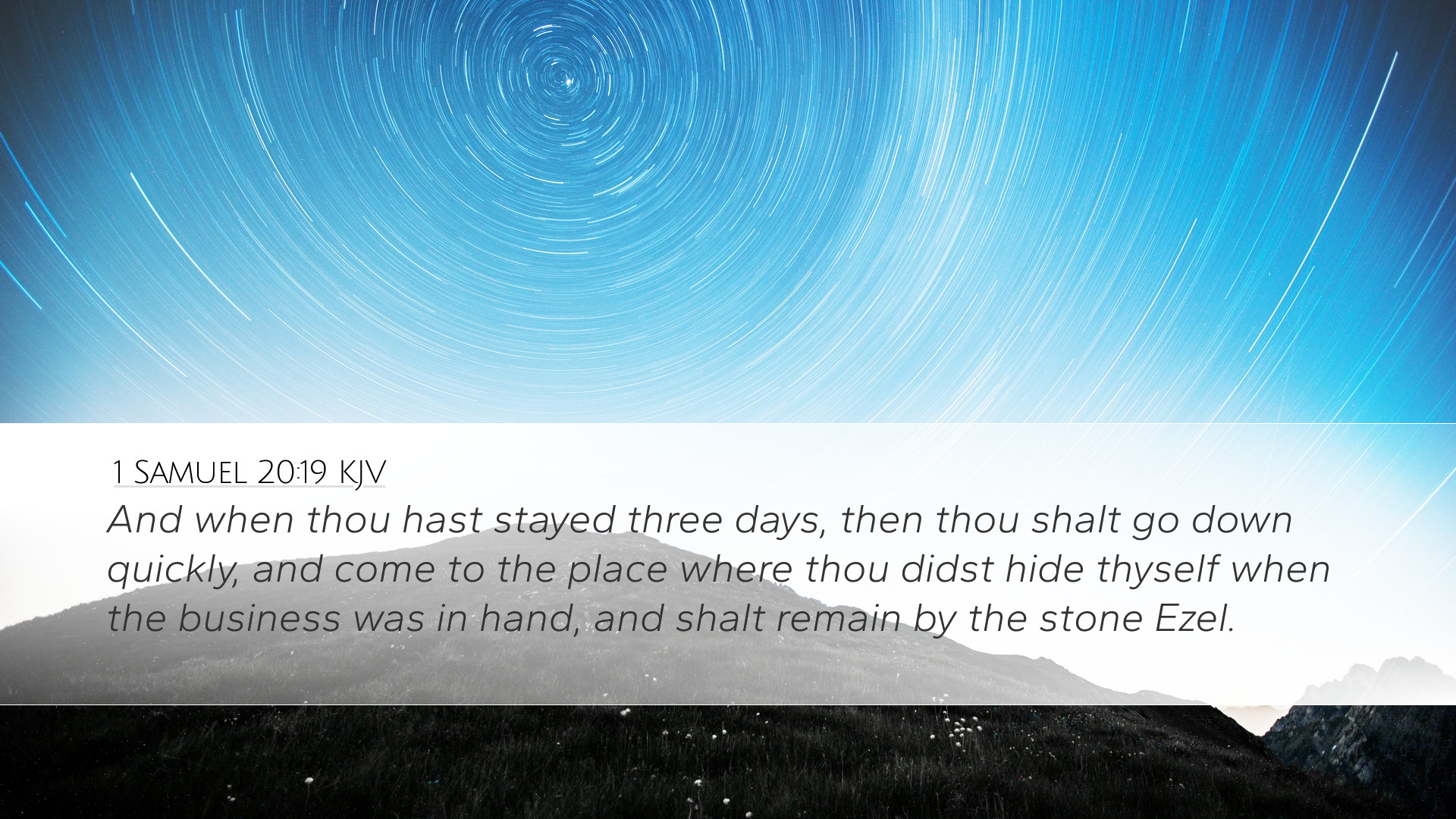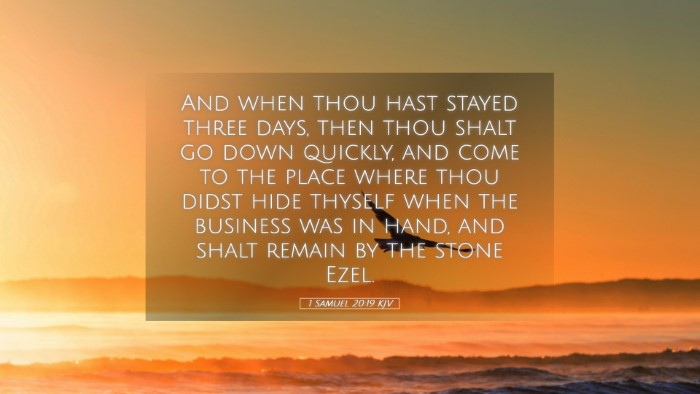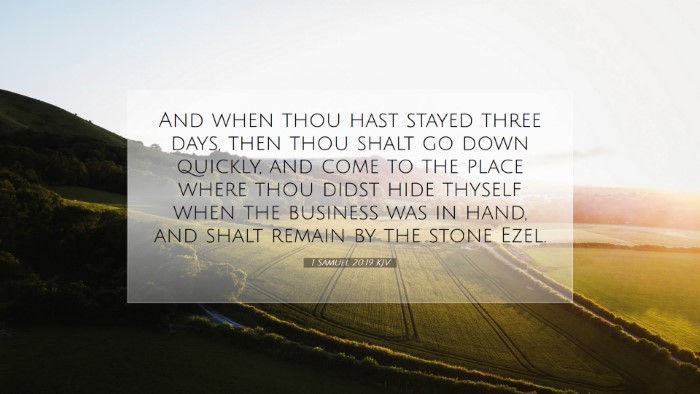Bible Commentary on 1 Samuel 20:19
Bible Verse: "And when thou hast stayed three days, then thou shalt go down quickly, and come to the place where thou didst hide thyself when the business was in hand, and shalt remain by the stone Ezel." (1 Samuel 20:19, KJV)
Introduction
This verse is situated within one of the most intimate and poignant narratives of friendship found in the scriptures, particularly between David and Jonathan. In this context, we examine the intricate dynamics of loyalty, divine providence, and the complexities of human relationships. The commentaries of Matthew Henry, Albert Barnes, and Adam Clarke offer profound insights into the significance of this passage, highlighting the deeper theological and practical implications for believers today.
Contextual Analysis
Historical Background: The backdrop of this verse is the growing animosity of King Saul towards David. Saul's jealousy and wrath towards David had reached a peak, compelling David to seek refuge and guidance from Jonathan, Saul’s son and his closest friend. The plan they devise is sophisticated, illustrating the gravity of David’s situation.
Setting the Scene: The "three days" mentioned refers to a specific time of waiting — a preparatory period for both David and Jonathan to discern and communicate Saul’s intentions. This notion of waiting, which resonates throughout scripture, serves as a crucial element in God’s providential timing.
The Meaning of "Stone Ezel"
The mention of “the stone Ezel” is significant. In biblical hermeneutics, stones often symbolize witness and the testimony of events that transpired. Ezel can be interpreted as “to be gone” or “to depart,” alluding to the transitory nature of David’s situation as well as the impermanence of Saul’s rule.
- Symbol of Refuge: The stone not only marks a place of concealment for David but also signifies the secure refuge provided by God in times of peril.
- Testimony of Events: This stone stands as a reminder of the covenant of friendship between Jonathan and David, reflecting their commitment to one another amidst adversity.
Theological Implications
- Divine Providence: This verse illustrates the doctrine of divine providence where God orchestrates events for His purposes. David’s hiding and the ensuing communication symbolize God’s protective hand over His chosen one, ensuring that he is preserved for future leadership.
- Human Loyalty: The loyalty displayed between Jonathan and David is a profound mark of covenant friendship, emphasizing the importance of sincere and steadfast relationships amongst believers.
Lessons for Today’s Believers
From this passage, several key lessons emerge for pastors, students, and theologians:
- The Importance of Planning: David's strategy in hiding shows the necessity of wise planning in the face of danger. Believers are encouraged to seek God’s guidance when confronted with complex situations.
- Faith and Trust: The directive to remain by the stone Ezel portrays an act of faith. While waiting for news, believers must trust in God’s timing rather than their understanding of events.
- Covenant Relationships: The bond between Jonathan and David stands as a model for genuine Christian friendships, which should be characterized by loyalty, support, and love.
- Reality of Conflict: This narrative reminds readers that conflict is a part of the believer's journey; however, God continuously guides those committed to His purpose, even in trying times.
Conclusion
1 Samuel 20:19 embodies not just the struggle of a fugitive king-in-waiting but simultaneously highlights the beauty of deep relational loyalty amidst persecution. Both the historical context and theological insights provided by respected commentators underscore the timeless truths of God’s providence, the essence of covenant friendship, and the call to faithfulness. As modern readers, we are drawn to emulate the virtues demonstrated by David and Jonathan and remain anchored in the sovereignty of God in all circumstances.


